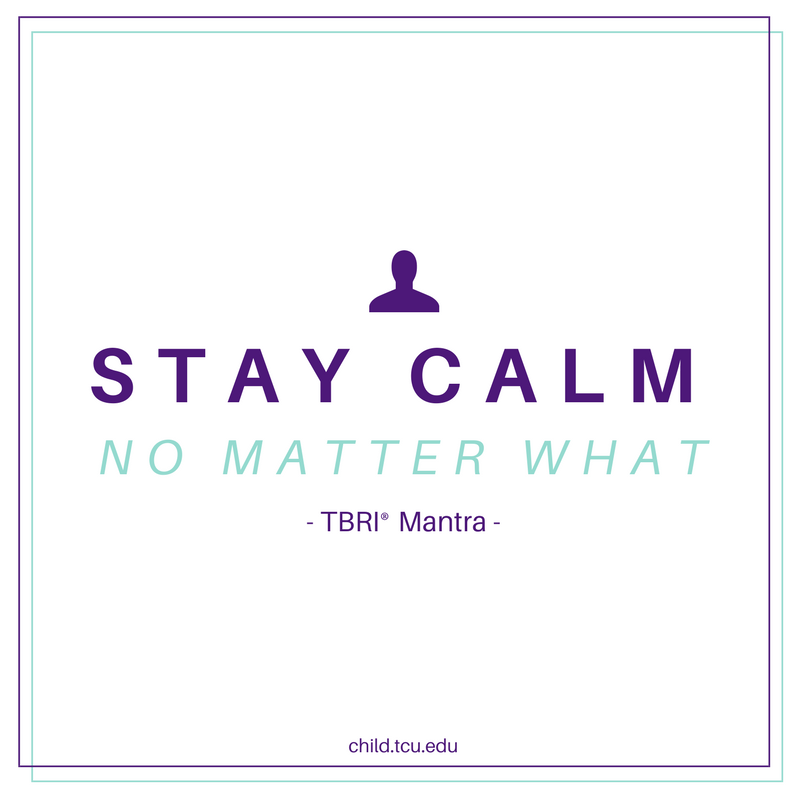In this series we are exploring mantras and their role in caring for children from hard places. Dr. Cross’s TBRI Mantra includes nuggets of wisdom that can be helpful for anyone who is using Trust-Based Relational Intervention. If you haven’t yet, go ahead and read the first post in this series before reading this installment.
by Emmelie Pickett
It seems that we’re constantly being told to “keep calm and carry on” these days. While it’s a nice sentiment, is staying calm really that easy? When encountering challenging and potentially triggering behaviors, it is crucial for caregivers to remain calm.
Dr. Cross offered some insight on how to stay calm in difficult moments:
“When I think of ways to stay calm, I think of breathing. Just taking a deep breath can help us to stay calm. It’s also important to be willing to do or say nothing, but to just stay in the moment with your child. If you need to walk away for a moment to calm yourself, that’s okay.” – Dr. David Cross
Think of “stay calm” in terms of flight safety instructions: first put on your oxygen mask, then assist the child near you with his oxygen mask. Try several strategies until you learn what makes your heart rate slow and your breath ease when you are feeling triggered or anxious. Take deep breaths, count to ten in your head, or use regulation exercises to keep you calm throughout the interaction. Remember: our children must experience co-regulation from a nurturing caregiver before they are able to self-regulate. To help your child reach a calm state, you must be calm.
Use your words:
What’s your favorite technique for staying calm in the crunch times?

I use star technique:
Stop (stop talking or leave the room if needed)
Take a breather
Appreciate (think about what I appreciate about my child)
Respond Relationally